
Foundations of Structured Trade Finance
¥2452.50
Are you interested in learning more about the complex area of structured trade financeStructured Trade Finance (STF) is a highly specialised area of trade finance that has evolved directly from practice. As it grows and becomes more complex in an increasingly risk-based regulatory environment, there is a need for more detailed guidance on the subject. Foundations of Structured Trade Finance will provide you with exactly this. Written by Dr Oramah — President of Afreximbank and a professional who played an important role in the evolution of STF — this report will: Address the philosophical foundations and risks associated with structured trade finance Provide step-by-step guidance on how deals can be structured Outline the scope of coverage outside the confines of commodities Examine real life case studies and draw out lessons that can be learned from these STF has proven itself as an effective instrument for attracting trade finance to those regions that receive limited trade finance and which lag behind in trade and economic performance. Ensure you're aware of the risks associated with it.

Brand Strategy and Management for Law Firms
¥2452.50
An effective brand strategy that is clearly understood and supported throughout your firm is crucial if you want to attract and retain profitable clients and sustain a talented workforce. Managing Partner’s Brand Strategy and Management for Law Firms report provides a comprehensive framework and guidelines for developing a brand strategy tailored to your firm. Packed with key concepts, practical tools, tips and advice this report will give you an understanding of brand and how it can be developed and strengthened as your firm’s most invaluable asset. Specifically, this report will help you to: Understand the key elements of personal brands, firm brand, and the employment brand – and how they relate to each other; Align your brand strategy with your overall firm strategy, vision and values; Realise the importance of brand names, icons or logos, design and aesthetics; · Understand the key brand considerations when using online channels – websites, blogs, LinkedIn, Twitter and Facebook; · Create a customised brand stress-test and make improvements to strengthen your firm’s brand accordingly and ensure its success; · Get partners and staff on board to support and grow your brand; and · Avoid brand mistakes and overcome the common challenges – including recommended steps for managing your brand before, during and following a merger. · Brand Strategy and Management for Law Firms features insightful case studies, examples and expert contributions from the likes of Norton Rose South Africa, DLA Phillips Fox, Lex Mundi, Lex Africa and more… They reveal practical tips, lessons learned and mistakes made that will prove invaluable in the development and management of your own brand strategy.
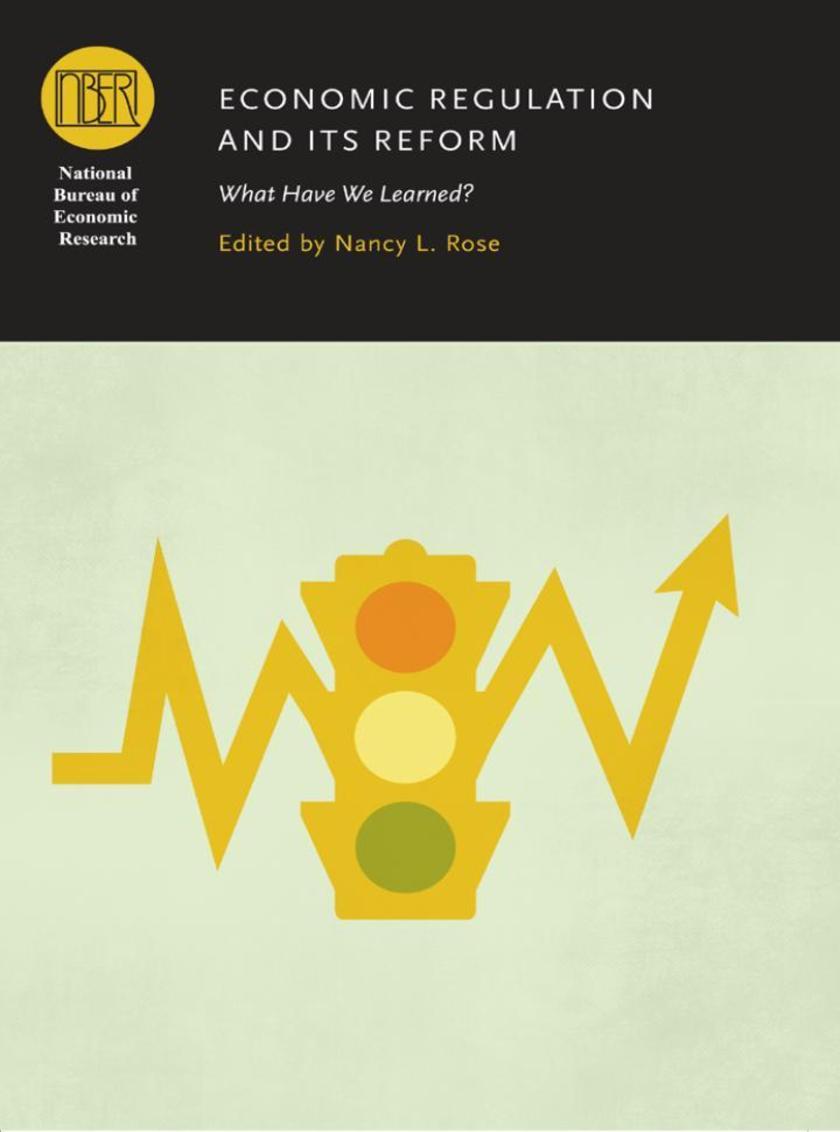
Economic Regulation and Its Reform
¥906.44
The past thirty years have witnessed a transformation of government economic intervention in broad segments of industry throughout the world. Many industries historically subject to economic price and entry controls have been largely deregulated, including natural gas, trucking, airlines, and commercial banking. However, recent concerns about market power in restructured electricity markets, airline industry instability amid chronic financial stress, and the challenges created by the repeal of the Glass-Steagall Act, which allowed commercial banks to participate in investment banking, have led to calls for renewed market intervention.Economic Regulation and Its Reform collects research by a group of distinguished scholars who explore these and other issues surrounding government economic intervention. Determining the consequences of such intervention requires a careful assessment of the costs and benefits of imperfect regulation. Moreover, government interventions may take a variety of forms, from relatively nonintrusive performance-based regulations to more aggressive antitrust and competition policies and barriers to entry. This volume introduces the key issues surrounding economic regulation, provides an assessment of the economic effects of regulatory reforms over the past three decades, and examines how these insights bear on some of today's most significant concerns in regulatory policy.
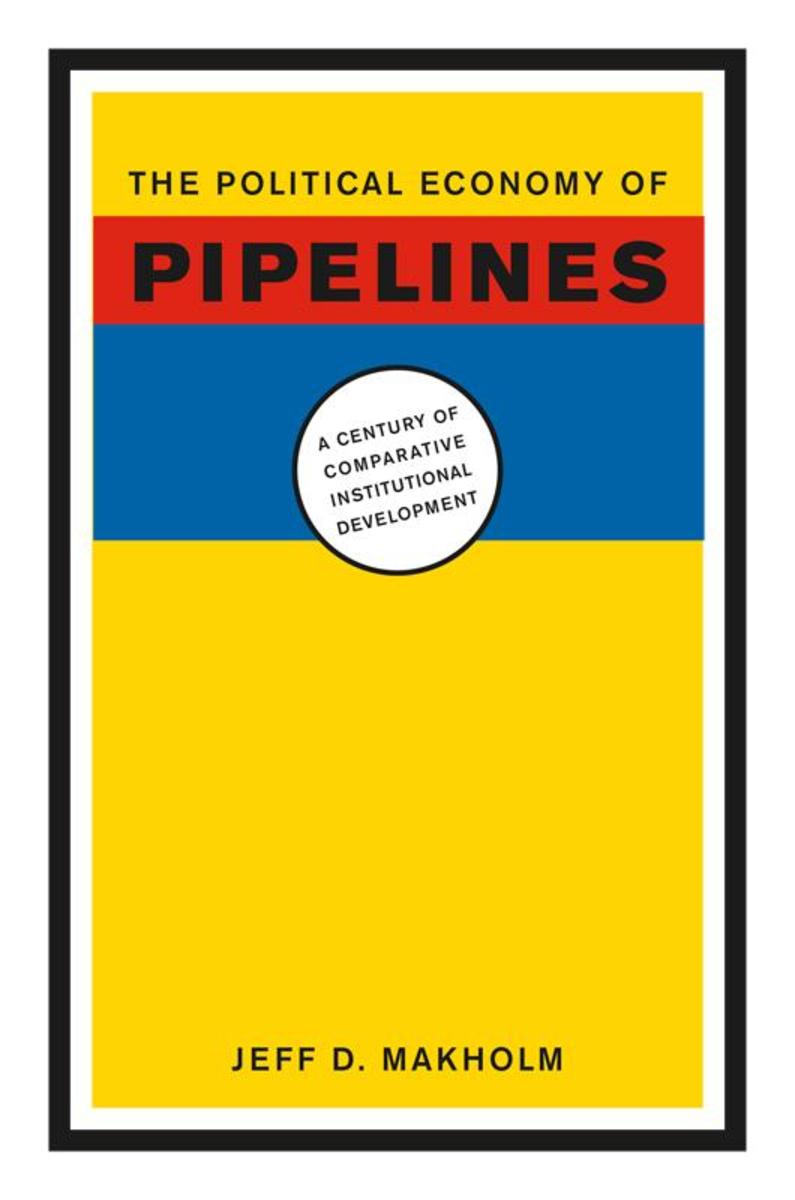
Political Economy of Pipelines
¥576.83
With global demand for energy poised to increase by more than half in the next three decades, the supply of safe, reliable, and reasonably priced gas and oil will continue to be of fundamental importance to modern economies. Central to this supply are the pipelines that transport this energy. And while the fundamental economics of the major pipeline networks are the same, the differences in their ownership, commercial development, and operation can provide insight into the workings of market institutions in various nations.?Drawing on a century of the world's experience with gas and oil pipelines, this book illustrates the importance of economics in explaining the evolution of pipeline politics in various countries. It demonstrates that institutional differences influence ownership and regulation, while rents and consumer pricing depend on the size and diversity of existing markets, the depth of regulatory institutions, and the historical structure of the pipeline businesses themselves. The history of pipelines is also rife with social conflict, and Makholm explains how and when institutions in a variety of countries have controlled pipeline behavior-either through economic regulation or government ownership-in the public interest.

Institutional Foundations of Impersonal Exchange
¥488.54
Governments and development agencies spend considerable resources building property and company registries to protect property rights. When these efforts succeed, owners feel secure enough to invest in their property and banks are able use it as collateral for credit. Similarly, firms prosper when entrepreneurs can transform their firms into legal entities and thus contract more safely. Unfortunately, developing registries is harder than it may seem to observers, especially in developed countries, where registries are often taken for granted. As a result, policies in this area usually disappoint. ?Benito Arruada aims to avoid such failures by deepening our understanding of both the value of registries and the organizational requirements for constructing them. Presenting a theory of how registries strengthen property rights and reduce transaction costs, he analyzes the major trade-offs and proposes principles for successfully building registries in countries at different stages of development. Arruada focuses on land and company registries, explaining the difficulties they face, including current challenges like the subprime mortgage crisis in the United States and the dubious efforts made in developing countries toward universal land titling. Broadening the account, he extends his analytical framework to other registries, including intellectual property and organized exchanges of financial derivatives. With its nuanced presentation of the theoretical and practical implications, Institutional Foundations of Impersonal Exchange significantly expands our understanding of how public registries facilitate economic growth.

Resistance to Innovation
¥370.82
Every year, about 25,000 new products are introduced in the United States. Most of these products fail-at considerable expense to the companies that produce them. Such failures are typically thought to result from consumers' resistance to innovation, but marketers have tended to focus instead on consumers who show little resistance, despite these "e;early adopters"e; comprising only 20 percent of the consumer population.Shaul Oreg and Jacob Goldenberg bring the insights of marketing and organizational behavior to bear on the attitudes and behaviors of the remaining 80 percent who resist innovation. The authors identify two competing definitions of resistance: In marketing, resistance denotes a reluctance to adopt a worthy new product, or one that offers a clear benefit and carries little or no risk. In the field of organizational behavior, employees are defined as resistant if they are unwilling to implement changes regardless of the reasons behind their reluctance. Seeking to clarify the act of rejecting a new product from the reasons-rational or not-consumers may have for doing so, Oreg and Goldenberg propose a more coherent definition of resistance less encumbered by subjective, context-specific factors and personality traits. The application of this tighter definition makes it possible to disentangle resistance from its sources and ultimately offers a richer understanding of consumers' underlying motivations. This important research is made clear through the use of many real-life examples.

The Irrational Bundle
¥323.63
Dan Ariely's three New York Times bestselling books on his groundbreaking behavioral economics research, Predictably Irrational, The Upside of Irrationality, and The (Honest) Truth About Dishonesty, are now available for the first time in a single volume.

Collateral Knowledge
¥265.87
It has been more than twelve years since this project began.This book draws upon seventeen months of fieldwork conducted in Tokyo between summer 1997 and fall 2001 followed by frequent research visits in the years that followed.Research and writing were supported by the American Bar Foundation, a Howard Fellowship, an American Council of Learned Societies Fellowship, a residential fellowship at Girton College, Cambridge, and research grants from the Social Science Research Council, the Japan Foundation, and the National Endowment for the Humanities.During that time, I held visiting positions at the University of Tokyo Faculty of Law, the Department of Anthropology at Keio University, and the Institute of Social Science at the University of Tokyo.I am grateful to each of these institutions for their hospitality, and in particular to professors Yoshiko Terao, Satoshi Tanahashi, and Yuji Genda, respectively, for making each of these affiliations possible.

Reluctant Capitalists: Bookselling and the Culture of Consumption
¥229.55
Over the past half-century, bookselling, like many retail industries, has evolved from an arena dominated by independent bookstores to one in which chain stores have significant market share. And as in other areas of retail, this transformation has often been a less-than-smooth process. This has been especially pronounced in bookselling, argues Laura J. Miller, because more than most other consumer goods, books are the focus of passionate debate. What drives that debateAnd why do so many people believe that bookselling should be immune to questions of profit?In Reluctant Capitalists, Miller looks at a century of book retailing, demonstrating that the independent/chain dynamic is not entirely new. It began one hundred years ago when department stores began selling books, continued through the 1960s with the emergence of national chain stores, and exploded with the formation of "e;superstores"e; in the 1990s. The advent of the Internet has further spurred tremendous changes in how booksellers approach their business. All of these changes have met resistance from book professionals and readers who believe that the book business should somehow be "e;above"e; market forces and instead embrace more noble priorities.Miller uses interviews with bookstore customers and members of the book industry to explain why books evoke such distinct and heated reactions. She reveals why customers have such fierce loyalty to certain bookstores and why they identify so strongly with different types of books. In the process, she also teases out the meanings of retailing and consumption in American culture at large, underscoring her point that any type of consumer behavior is inevitably political, with consequences for communities as well as commercial institutions.
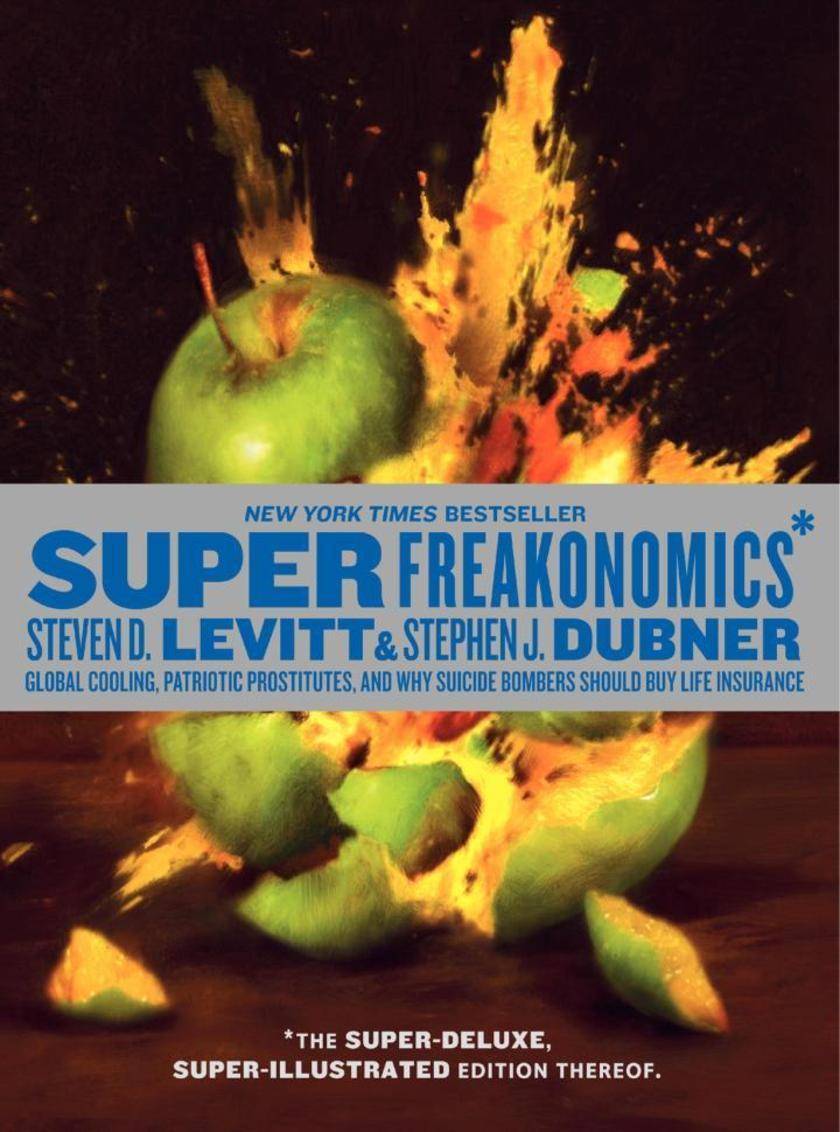
SuperFreakonomics, Illustrated edition
¥223.92
Seeing is believing . . . The Smash Hit SuperFreakonomics is now Bigger and Better SuperFreakonomics was an instant New York Times bestseller that caused a media uproar, continuing the amazing success begun with the groundbreaking, worldwide sensation Freakonomics.With the Illustrated Edition, Steven D. Levitt and Stephen J. Dubner bring alive their smart thinking and great storytelling with an explosion of visual evidence, including: A by-the-numbers tally of a high-priced call girl's career, and a tracking sheet from an intensive survey of Chicago street prostitutes. A visual quiz that lets you pit your memory against the memory of a chess grand master. Images of the hurricane-killing machine and other geo-engineering inventions described in SuperFreakonomics. A look into whether doctors are better at saving lives in TV dramas or in real hospitals. Whether probing the intricacies of sex change oper-ations, the effectiveness of child car seats, or what really motivates people to do good, the Illustrated Edition of SuperFreakonomics employs photographs, drawings, and graphs that will lead readers to see the world in a bold, fresh way.

Five Frogs on a Log
¥221.54
A riddle: Five frogs are sitting on a log. Four decide to jump off. How many are leftAnswer: Five WhyBecause there's a difference between deciding and doing. Written by Mark L. Feldman and Michael F. Spratt of PricewaterhouseCoopers, Five Frogs on a Log offers readers an entertaining and no-nonsense field guide to the mergers and acquisitions jungle, packed with insight and instruction for executing corporate change and capturing shareholder value. Whether you're buying another company or acquiring a new vision of the future, this book proffers an unconventional perspective and a practical, readily accessible set of solutions to the single greatest challenge facing today's managers: executing rapid transitions ion mergers, acquisitions and gut wrenching change. Designed for corporate managers and CEOs caught up in the whirlwind of change, every chapter provides accessible ideas and wisdom for navigating the most demanding business transitions. The authors offer a unique hands-on perspective based on their work with top Fortune 500 firms. As they state: "Increasingly, the companies that win are those that learn faster, act quicker and adapt sooner. They will compress time by making and executing early, informed decisions about economic value creation, ruthless prioritization and focused resource allocation. They will use these decisions to take early firm stands on management deployment, organization structure and culture. Their actions will increasingly be linked to long-term, sustained economic value creation." The advice and expertise offered in this book can be used to solve a range of operational problems from speeding up new product development to merging two businesses; from changing company culture to repositioning a business in a while new marketplace. Whatever the challenges and opportunities facing you, your company, your industry, Five Frogs on a Log will move you from deciding to doing.

Intro to GDPR: A Plain English Guide to Compliance
¥192.11
Intro to GDPR is written by experienced data protection professional Punit Bhatia. Bhatia has served as the Privacy and Protection Officer in an EU-based bank and lecturer at the Solvay Brussels School of Economics and Management. He is Certified Information Privacy Professional ? Europe (CIPP-E), Certified Information Privacy Manager (CIPM), and Certified Outsourcing Professional (COP). Bhatia will lead you through the complex journey to the GDPR compliance with the simple language and many practical examples. Whether you are a complete beginner or experienced data protection practitioner this book is the right resource for you. Intro to GDPR is a complete guide to compliance. Bhatia uses the simple language, understandable to everyone in order to lead you from the introduction all the way to getting your organization GDPR compliant. In this book you will learn: 1. Which organisations need to be compliant with the GDPR? 2. Key terms in the GDPR. You will get familiarized with key terms that form the basis of the GDPR. You will learn definitions of terms: “Personal data”, “Special categories of personal data”, “Processing” difference between terms “Controller” and “Processor” and others. 3. Myths about the GDPR like “the GDPR is only applicable in the EU”, “The GDPR is about fines” and others. 4. Transparency through the privacy notice. As written in the book, “transparency is one of the key principles in the EU GDPR” so it is important to understand what is transparency and privacy notice but also what are the key requirements and contents of a privacy notice. 5. Data breaches. “GDPR requirements on data breaches are different for controllers and for processors” – this chapter will make you aware of data breach requirements and key actions that are required once a breach is detected. 6. What is the first thing to do to become compliant and what are the key factors to remain compliant with the GDPR, and much more. Written in plain English, with many practical examples, Intro to GDPR is the only book you need on the subject of GDPR.
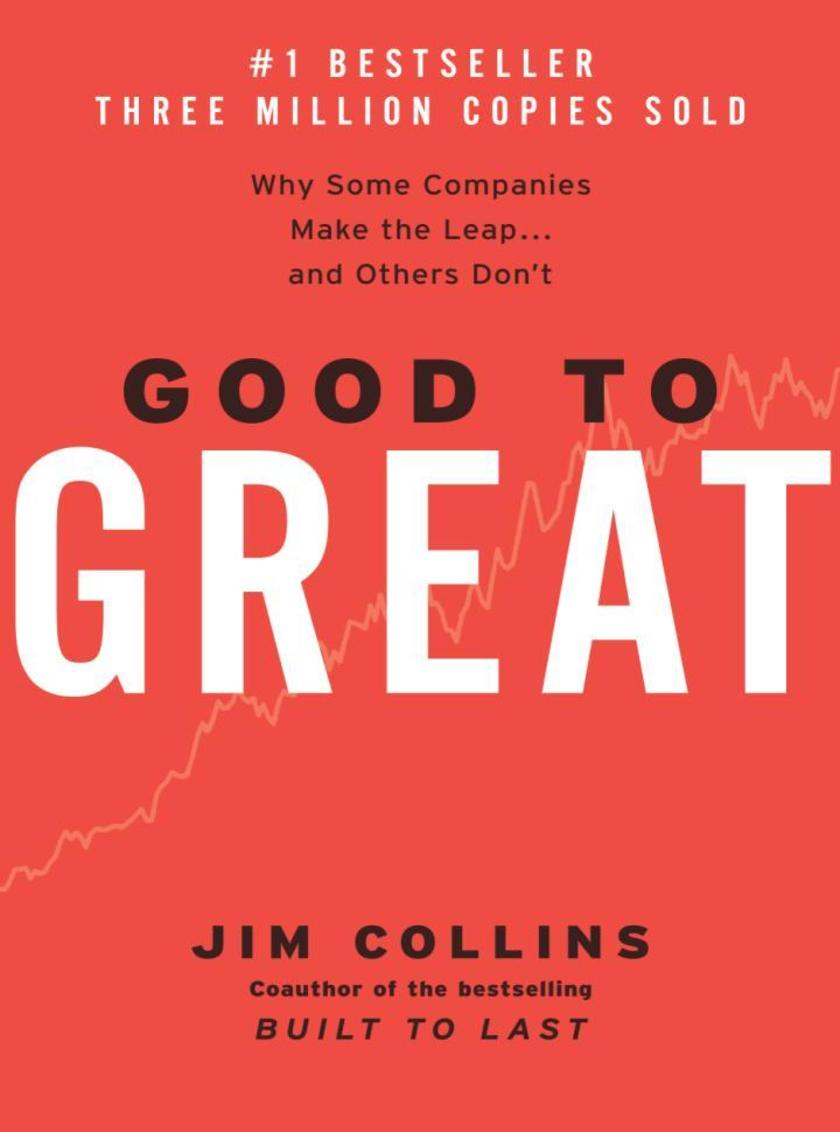
Good to Great
¥182.47
The Challenge Built to Last, the defining management study of the nineties, showed how great companies triumph over time and how long-term sustained performance can be engineered into the DNA of an enterprise from the verybeginning. But what about the company that is not born with great DNAHow can good companies, mediocre companies, even bad companies achieve enduring greatnessThe Study For years, this question preyed on the mind of Jim Collins. Are there companies that defy gravity and convert long-term mediocrity or worse into long-term superiorityAnd if so, what are the universal distinguishing characteristics that cause a company to go from good to greatThe Standards Using tough benchmarks, Collins and his research team identified a set of elite companies that made the leap to great results and sustained those results for at least fifteen years. How greatAfter the leap, the good-to-great companies generated cumulative stock returns that beat the general stock market by an average of seven times in fifteen years, better than twice the results delivered by a composite index of the world's greatest companies, including Coca-Cola, Intel, General Electric, and Merck.The Comparisons The research team contrasted the good-to-great companies with a carefully selected set of comparison companies that failed to make the leap from good to great. What was differentWhy did one set of companies become truly great performers while the other set remained only goodOver five years, the team analyzed the histories of all twenty-eight companies in the study. After sifting through mountains of data and thousands of pages of interviews, Collins and his crew discovered the key determinants of greatness -- why some companies make the leap and others don't. The Findings The findings of the Good to Great study will surprise many readers and shed light on virtually every area of management strategy and practice. The findings include: Level 5 Leaders: The research team was shocked to discover the type of leadership required to achieve greatness. The Hedgehog Concept (Simplicity within the Three Circles): To go from good to great requires transcending the curse of competence. A Culture of Discipline: When you combine a culture of discipline with an ethic of entrepreneurship, you get the magical alchemy of great results. Technology Accelerators: Good-to-great companies think differently about the role of technology. The Flywheel and the Doom Loop: Those who launch radical change programs and wrenching restructurings will almost certainly fail to make the leap. Some of the key concepts discerned in the study, comments Jim Collins, "fly in the face of our modern business culture and will, quite frankly, upset some people.Perhaps, but who can afford to ignore these findings?

Leadership BS
¥168.37
Too many leadership failures. Too many career derailments. Too many toxic workplaces filled with disengaged, distrustful employees. Jeffrey Pfeffer, a professor at the Stanford Graduate School of Business and the author of Power, offers an incisive dissection of the multibillion-dollar leadership industry and presents ways to fix its many problems.In Leadership BS, Jeffrey Pfeffer pulls back the curtain, showing how leadership really works and why so many leadership development efforts fail. In this forthright and persuasive critique, Pfeffer argues that much of the oft-repeated wisdom about leadership is based more on hope than reality, on wishes rather than data, on beliefs instead of science. In an age when transparency is considered a virtue, Pfeffer makes the case that strategic misrepresentation isn't as harmful as you think, that breached agreements are a part of business, that immodesty is frequently a path to success, and that relying on the magnanimity of your boss is a bad bet.Using research findings from social psychology, sociology, and sociobiology, and filled with practical, actionable advice, Leadership BS encourages readers to finally stop accepting sugar-laced but toxic potions as cures and to understand the realities of organizations and human behavior.To make real change, Pfeffer argues, we need to get beyond the half-truths and self-serving stories that are so prominent in the mythology of leadership. In calling BS on so much conventional wisdom, Leadership BS offers both a provocative, scientific examination of how leadership actually works and how it doesn't and a pre*ion for leaders future and present.

Be the Change
¥168.14
Meet the men and women whose deeply personal philanthropy is dramatically changing the way we think about giving There are 8.6 million millionaires in the United States, and these numbers are set to rise in what will be the biggest intergenerational wealth transfer in history. As $41 trillion dollars (or over three times the national GDP) moves from the World War II generation to their baby- boomer children over the next couple of decades, it will become imperative that the beneficiaries of this wealth—even those not joining the ranks of the superrich—begin thinking about philanthropy, perhaps for the first time in their adult lives. Here they will find the personal journeys of the most successful givers of their generation. This new generation of wealth has already begun to change the face of philanthropy and to reshape the entire nonprofit sector. In Be the Change, bestselling author Lisa Endlich presents eleven compelling profiles of this twenty-first century generosity. Through candid, revealing, and often surprising interviews, readers will venture into the hearts and minds of the top names in philanthropy today—men and women who have chosen to use their immense riches and influence to meaningfully improve the lives of others in the most dramatic ways. These intimate conversations include in-depth interviews with: ?Melinda Gates, one of the driving forces behind the largest philanthropic organization the world has ever seen; ?Bob and Suzanne Wright, he's the former vice chairman of GE and longtime head of NBC Universal and their Autism Speaks has brought awareness of autism onto the national and international stage; ?Paul Tudor Jones, founder of Tudor Investments and the Robin Hood Foundation; ?Peter Bloom, founding chairman of the groundbreaking DonorsChoose.org. From Connie Duckworth, a former Goldman Sachs partner, who brings steady employment to Afghani women and education to them and their children, to Johann Olav Koss, an Olympic gold medalist who now strives to give children in the direst circumstances the chance to play, these philanthropists demonstrate that giving doesn't begin or end with a signed check. They grant Endlich exclusive access to the stories of how they learned from early failures and developed a personal, sustainable way of giving, and they also share the catalyzing moment when they saw a problem so heartbreaking they simply could not turn away. In doing so, these new philanthropists offer valuable lessons—ones that will inspire readers to start giving, keep giving, and become the change they want to see in the world.

Boundaries for Leaders
¥167.88
In Boundaries for Leaders, clinical psychologist and bestselling author Dr. Henry Cloud leverages his expertise of human behavior, neuroscience, and business leadership to explain how the best leaders set boundaries within their organizations--with their teams and with themselves--to improve performance and increase employee and customer satisfaction. In a voice that is motivating and inspiring, Dr. Cloud offers practical advice on how to manage teams, coach direct reports, and instill an organization with strong values and culture. Boundaries for Leaders: Take Charge of Your Business, Your Team, and Your Life is essential reading for executives and aspiring leaders who want to create successful companies with satisfied employees and customers, while becoming more resilient leaders themselves.

Freakonomics Rev Ed
¥167.88
Which is more dangerous, a gun or a swimming poolWhat do schoolteachers and sumo wrestlers have in commonHow much do parents really matterThese may not sound like typical questions for an economist to ask. But Steven D. Levitt is not a typical economist. He studies the riddles of everyday life—from cheating and crime to parenting and sports—and reaches conclusions that turn conventional wisdom on its head. Freakonomics is a groundbreaking collaboration between Levitt and Stephen J. Dubner, an award-winning author and journalist. They set out to explore the inner workings of a crack gang, the truth about real estate agents, the secrets of the Ku Klux Klan, and much more. Through forceful storytelling and wry insight, they show that economics is, at root, the study of incentives—how people get what they want or need, especially when other people want or need the same thing.
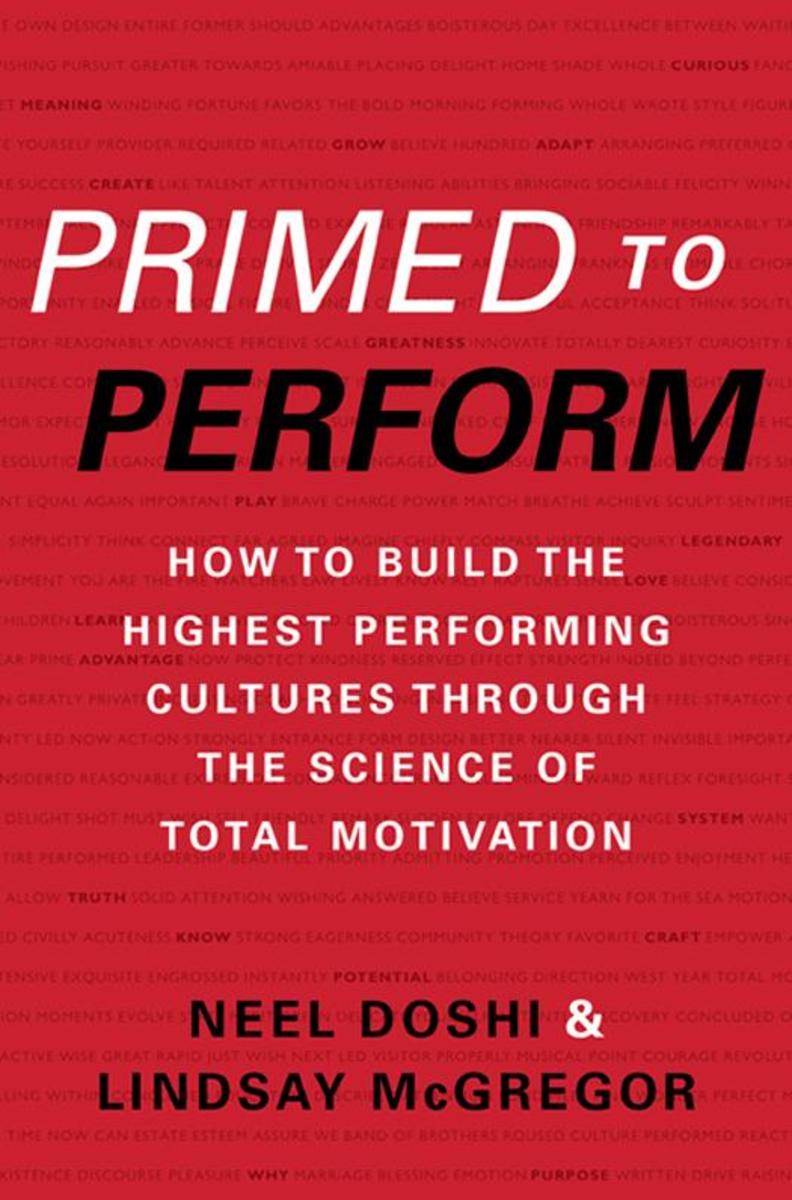
Primed to Perform
¥166.09
Why do some workplace cultures inspire energy and innovation, while others fuel anxiety, boredom, or cynicismUntil now, such legendary cultures have seemed like magic beyond our control. However, behind every culture is a surprisingly elegant science. Primed to Perform proves that the highest-performing cultures are built on a simple truth: why people work affects how well they work. Great organizations inspire the three most powerful motives for work play, purpose, and potential and eliminate the three most destructive emotional pressure, economic pressure, and inertia. They create total motivation (or ToMo, for short). Total motivation cultures create the highest-performing employees and the most adaptive organizations.Authors Neel Doshi and Lindsay McGregor show that extraordinary performance at companies like Southwest Airlines, Starbucks, Apple, and Whole Foods comes from cultures that inspire total motivation. They describe how investment professionals, salespeople, teachers, and CEOs perform better when driven by total motivation. And, most important, they share how you can build a culture that inspires total motivation in every moment of every day.Primed to Perform builds on over a century of academic thinking as well as the authors' original research into how ToMo drives performance at iconic companies. It introduces the authors' highly predictive new measurement tool, the total motivation factor, which allows leaders to measure the strength of their culture and understand how it changes over time. It gives leaders the tools to transform their own workplaces.High-performing cultures can't be left to chance; organizations must create systems that shape and maintain them. Whether you're a five-person team or a start-up, an elementary school or a university, a nonprofit or a mega-institution, Primed to Perform shows you how.
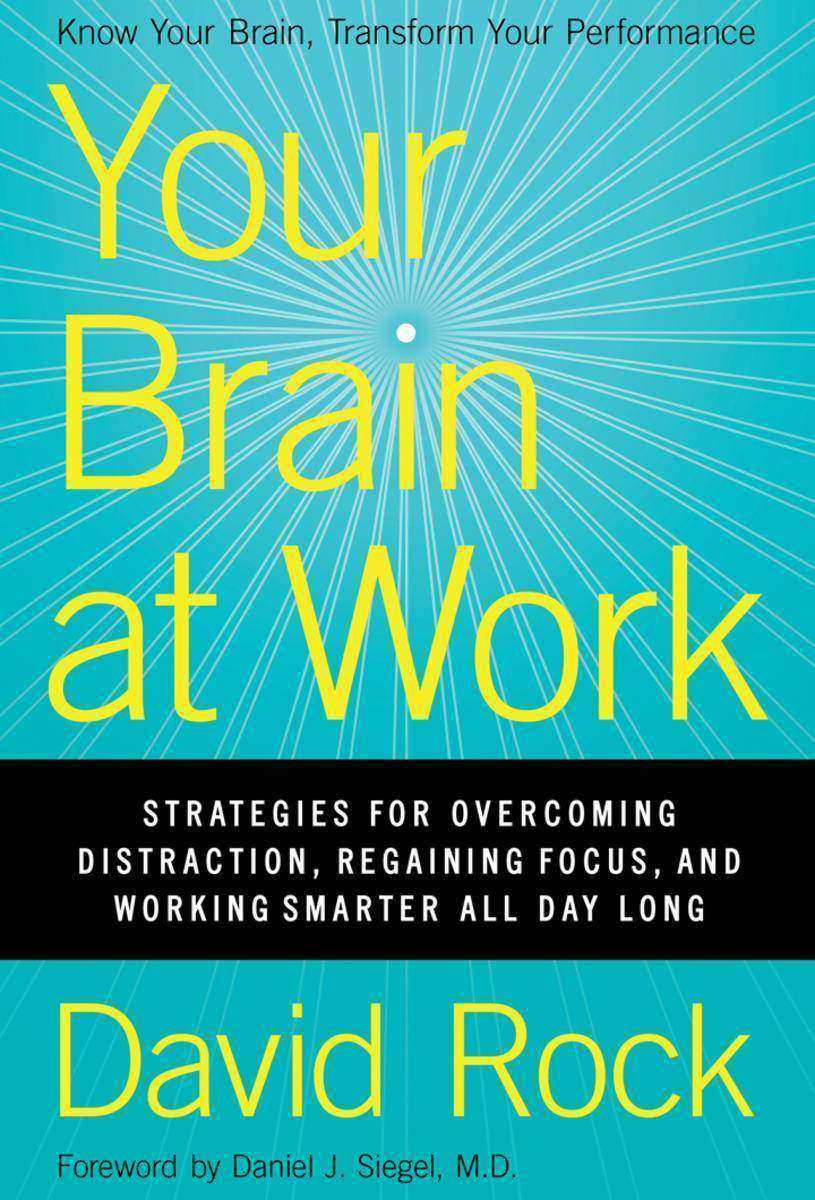
Your Brain at Work
¥166.09
Meet Emily and Paul, the parents of two young children. Emily is a newly promoted executive in a large corporation, while Paul has his own business as a consultant. Their lives, like all of ours, are filled with a bewildering blizzard of emails, phone calls, yet more emails, meetings, projects, proposals, and plans. For them, just staying ahead of the storm has become a seemingly insurmountable task. In this book, we travel inside the brains of Emily and Paul as they attempt to sort the vast quantities of information they're presented with and figure out how to prioritize, organize, and act on it. Fortunately for Emily and Paul and for readers of Your Brain at Work they're in good hands: David Rock knows how the brain works and more specifically, how it works in a work setting. Your Brain at Work explores: Why your brains feels so taxed, and how to take full advantage of your mental resources Why it's so hard to focus, and how to better manage distractions How to maximize your chance of finding insights that can solve seemingly insurmountable problems How to keep your cool in any situation, so that you can make the best decisions possible How to collaborate with others more effectively Why providing feedback is so difficult, and how to make it easier How to effectively change other people's behavior Rock shows how it's possible not only to survive in today's overwhelming work environment but to succeed in it and still feel energized at the end of the day, with a sense of accomplishment.

The Hard Thing About Hard Things
¥166.09
A lot of people talk about how great it is to start a business, but only Ben Horowitz is brutally honest about how hard it is to run one.In The Hard Thing About Hard Things, Ben Horowitz, cofounder of Andreessen Horowitz and one of Silicon Valley's most respected and experienced entrepreneurs, draws on his own story of founding, running, selling, buying, managing, and investing in technology companies to offer essential advice and practical wisdom for navigating the toughest problems business schools don't cover. His blog has garnered a devoted following of millions of readers who have come to rely on him to help them run their businesses. A lifelong rap fan, Horowitz amplifies business lessons with lyrics from his favorite songs and tells it straight about everything from firing friends to poaching competitors, from cultivating and sustaining a CEO mentality to knowing the right time to cash in.His advice is grounded in anecdotes from his own hard-earned rise from cofounding the early cloud service provider Loudcloud to building the phenomenally successful Andreessen Horowitz venture capital firm, both with fellow tech superstar Marc Andreessen (inventor of Mosaic, the Internet's first popular Web browser). This is no polished victory lap; he analyzes issues with no easy answers through his trials, including demoting (or firing) a loyal friend; whether you should incorporate titles and promotions, and how to handle them; if it's OK to hire people from your friend's company; how to manage your own psychology, while the whole company is relying on you; what to do when smart people are bad employees; why Andreessen Horowitz prefers founder CEOs, and how to become one; whether you should sell your company, and how to do it. Filled with Horowitz's trademark humor and straight talk, and drawing from his personal and often humbling experiences, The Hard Thing About Hard Things is invaluable for veteran entrepreneurs as well as those aspiring to their own new ventures.
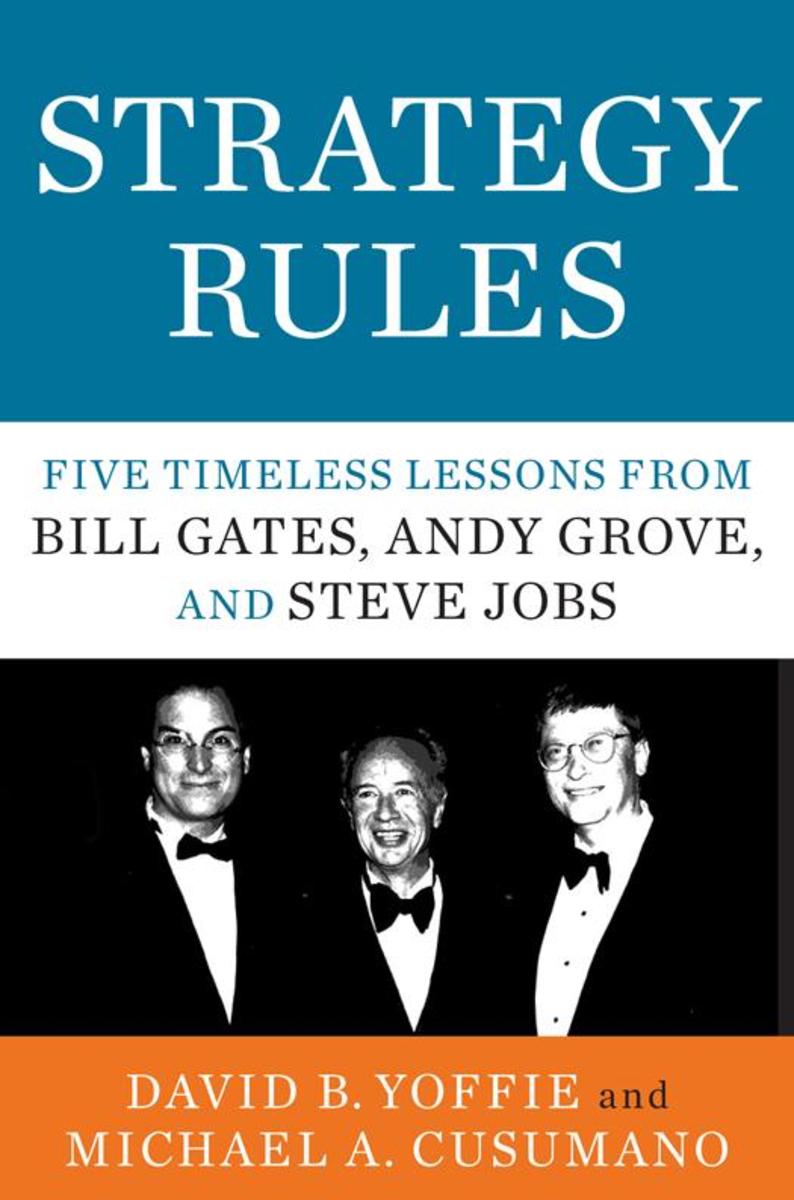
Strategy Rules
¥166.09
Between 1968 and 1976, Bill Gates, Andy Grove, and Steve Jobs launched three companies that would define the world of high technology, create more than a trillion dollars in value, and transform our lives. How did they realize these incredible achievementsStrategy Rules examines these three individuals collectively for the first time their successes and failures, comonalities and differences revealing the business strategies and practices they pioneered while building their firms.Eminent business professors David Yoffie and Michael Cusumano have studied these three leaders and their companies for nearly thirty years, while teaching business strategy, innovation, and entrepreneurship at Harvard Business School and the MIT Sloan School of Management. In this enlightening guide, they show how Gates, Grove, and Jobs became masters of strategy. As CEOs, each approached strategy and execution in remarkably similar ways yet markedly differently from their erstwhile competitors keeping their focus on five rules: Look Forward, Reason Back: They determined where they want their companies to be in the future and could reason back to identify the moves that would take them there. Make Big Bets, Without Betting the Company: All three men made enormous strategic bets but rarely took gambles that put the financial viability of their companies at undue risk. Build Platforms and Ecosystems: Technology leaders have to create industry platforms that enable other firms to create complementary products and services that make the platforms increasingly valuable. Exploit Leverage and Power: Gates, Grove, and Jobs often turned opponents strengths into weaknesses and used enormous resources (once they had them) to dominate competitors. Shape the Company around Your Personal Anchor: From Gates understanding of software to Grove's devotion to process discipline and Jobs obsession with design, all three built their companies around their personal strengths while compensating for their weaknesses. Strategy Rules brings together the best practices in strategic management and high-tech entrepreneurship, providing unique insights for start-up executives as well as the heads of modern multinationals.




 购物车
购物车 个人中心
个人中心



